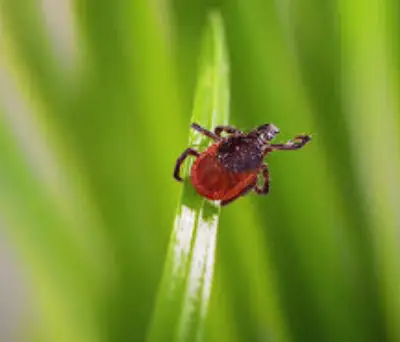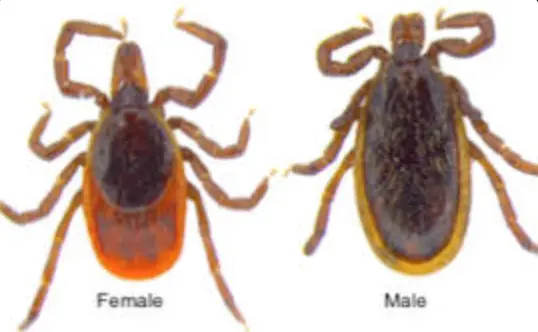Ticks might be tiny, but they pack a punch when it comes to affecting a puppy’s health. These little parasites bite down and latch onto the skin, feeding on blood and often carrying diseases that can seriously harm your pup. Finding the best tick treatments for puppies is essential for their health.
Untreated Tick Bites Can Lead To Diseases & Long Term Illnesses In Young Pups
One of the most alarming issues is tick-borne diseases. These can include Lyme disease, ehrlichiosis, and anaplasmosis, which are passed on through the tick’s saliva. Puppies, with their developing immune systems, are particularly vulnerable to these illnesses. Symptoms might not be obvious at first, but fatigue, fever, and reduced appetite are key signs to watch out for.
Beyond the immediate symptoms, there’s the risk of long-term health effects if tick bites go untreated. Some of these conditions can lead to chronic joint pain or neurological issues, which can have a significant impact on your puppy’s overall well-being and quality of life.
Catching these issues early makes a world of difference. Regular checks for ticks and a keen eye for any health changes in your puppy are crucial. If you notice any strange behavior or discomfort in your pup, don’t hesitate to reach out to your vet. Having a good treatment plan in place early on can prevent future complications.
Safe and Effective Tick Treatments For Puppies Starts With Removing Them
Spotting a tick on your puppy can be stressful, but removing it safely and thoroughly is crucial to protecting your pup’s health. It’s important to act quickly yet carefully to avoid any additional harm.
Start with the right tools, like a pair of fine-tipped tweezers or a tick removal tool designed specifically for the job. Gently grasp the tick as close to the skin as possible and pull upward with steady pressure. Avoid twisting or jerking, which can cause the tick’s mouth-parts to break off and remain in the skin.
After Removing The Tick
clean the area with soap and water or an antiseptic wipe. Keep an eye on the site for any signs of infection like redness or swelling. If the tick’s head gets stuck, or if you’re unsure about the removal process, reaching out to a vet is always a smart move.
Avoid common errors like burning the tick with a match or covering it with substances like nail polish. These methods can cause the tick to release more saliva, increasing the risk of disease transmission.
Having tick-removal products on hand can make this process much easier. Consider having some in your puppy’s first-aid kit. Besides, support from your vet can be invaluable if complications arise post-removal. Regular tick checks during grooming sessions are also advisable to catch these critters early.
Treating Puppies Effectively After Tick Infestation
Once you’ve cleared those pesky ticks from your puppy, it’s crucial to treat any potential side effects and care for your pup’s overall well-being. While you’ve handled the immediate threat, there’s a little more to do to ensure your furry friend bounces back to their playful self.
Start with a chat with your vet about medications that can help eliminate any remaining threats, like tick-borne diseases. They might prescribe specific medications or suggest treatments based on your puppy’s health and exposure risk. Being proactive early can ward off more serious issues down the line.
Home Remedies Too Soothe The Bite Area
such as natural antiseptics like chamomile or a gentle cleansing wash, can also help. These remedies can provide a bit of comfort while reducing the chance of skin irritation or infection.
You’ll want to watch your puppy closely over the next few weeks, checking for any changes in behavior or health—anything unusual like excessive fatigue or loss of appetite warrants another vet check.
Consistent follow-ups with your veterinarian ensure that your pup stays healthy and that any potential problems are addressed promptly. Your vet will guide you on any additional steps required, keeping you informed and your puppy protected throughout the recovery process.
Choosing The Best Tick Treatments For Puppies to Shield Them From More Bites
Keeping ticks at bay is a top priority to ensure your puppy stays healthy and happy. With a few simple preventative strategies, you can significantly reduce the risk of tick infestations.
Using tick-preventative products is your first line of defense. Speak with your vet about topical treatments, tick collars, or oral medications suited for your puppy’s age and size. These products can create a protective barrier, making your puppy less appealing to ticks.
For puppies under 7 weeks of age, using topical treatments for tick prevention can be hard to find. Most topical tick treatments are for puppies over 7 weeks of age or more, so using all natural treatments will be your safest and best choice until they are old enough for a monthly treatment.
Incorporating lifestyle changes can also reduce tick exposure. If you live in an area prone to ticks, try to keep your puppy away from heavily wooded or grassy areas, where ticks are most commonly found. Regularly mowing your lawn and trimming bushes can also decrease tick habitats around your home.
Grooming and checking your puppy consistently for ticks, especially after outdoor adventures, is crucial. Tick checks should become part of your routine, allowing you to catch any intruders before they cause harm.
Additionally, engaging in community initiatives, like local tick prevention programs or educational workshops, can provide valuable resources and support. Staying informed helps you stay one step ahead of these pests, ensuring your puppy can explore the world safely.
In Conclusion To The Best Tick Treatments For Puppies
I hope that you found the information helpful in your fight against ticks on your puppies. Remember to check your pups regularly after being outside for any signs of ticks and remove them immediately to avoid any health issues.
When your pup is over 7 weeks, or is about 7 lbs or more it is usually safe to use a topical tick treatment if you choose. Just read the label to see the safe weight and age of an individual product before using.
If you have any questions about any of the information in this article, please leave them in the comments section so that we can do our best to help you. Also, if you have your own experience with ticks on your puppy under 7 weeks of age, please share it below as well. When we share our own experiences, it can possibly help others make the right decisions for their puppies as well.
Thank you for visiting Fleas B Gone, have a great day 🙂




